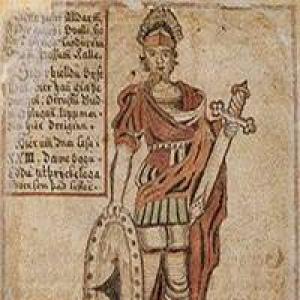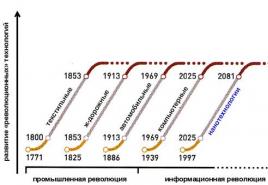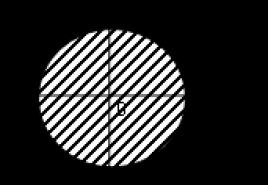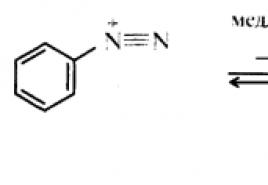Origin of the days of the week in German. Time indications – Zeitangaben Thursday in German
Today we will tell you about a rather interesting topic, such as the days of the week. On German their name and etymology are different from our native language, and this is quite funny, so let’s talk a little about this.
After all, something influenced the primary name of these very days, and the names invented by someone once stuck and reached the present moment.
So, first, let's just list the days of the week in German:
der Montag - Monday,
der Dienstag – Tuesday
der Mittwoch – Wednesday
der Donnerstag – Thursday
der Freitag – Friday
der Samstag/Sonnabend – Saturday
der Sonntag – Sunday
I will say right away that each of the names of any day of the week in German will be masculine because they end in –tag. By itself, the word tag means day.
And you probably noticed that the name of Saturday can be variable and has several different names. However, only the first of them belongs to the official version and, by the way, is used much more often.
Now let's talk about the etymology itself and the differences in it between German and Russian languages.
Let's start it all days of the week in German at first.
So, Monday. If in Russian this means next week, then our German the analogue comes from the name of the goddess der Mond, who was the goddess of the Moon.
Wednesday, according to the etymology of the word in these languages, is the same and means the middle of the week, although, in theory, the middle day of the week is Thursday.
And the etymology of the word Thursday is again different and the Russian language uses the numeral “four” in its name, and German does not disdain the name Donnar, who is similar to the god Jupiter.
Friday - everything is simple here, from the word fifth in Russian, and the loving Scandinavian goddess, who was also a symbol of fertility - Freya.
For the sixth day of the week - Saturday, there is something in common between our languages, and more specifically, both the Russian and German name of the word comes from the word Shabbat, which originally came and spread from the Jews.
Initially, this word is of Hebrew origin and is based on a combination of the words star of Saturn. However, there is another name for this word. Sonnabend is the same day off that comes before Sunday. In the GDR this was the recognized name for the Sabbath. As for Sunday, it is formed from the word “resurrect”, and in German, the analogue name follows from the name of the Sun God.
Once again I welcome lovers of foreign languages, in particular German. It’s been a long time since there have been German collections and I decided to please, and maybe upset some readers website. Basic German vocabulary- This is probably the most important aspect for all beginning students.
At the moment I am trying to break down all the important German vocabulary in sections by topic, because I think this method of studying is more productive and effective. Honestly, I don’t know which share of site visitors is greater: or, but if you think logically, it’s probably English :), after all, this is not such an educational portal for world languages. This does not prevent me from creating dictionaries, because German is exactly the language that I still need to study for a long time and productively.
Today I invite you to familiarize yourself with names of the days of the week in German plus other important words from this topic. As always, you will receive different formats of dictionaries - this is both in a regular document and in the format for Lingvo Tutor. The correct article before a word is also an important point in learning German, but here you do not need to worry, because in German there is always an article before any day of the week DER.
I have also prepared other similar vocabulary (all in one dictionary), which is quite often missed when studying the days of the week. Words like gestern, heute, morgen, übermorgen should always be in your memory. Some will say that these are elementary words, but sorry, not everything is here "advanced" German speakers. I wish you good luck in your studies and patience in everything.
Learned words “days of the week” in German with translation:
der Montag- Monday
der Dienstag- Tuesday
der Mittwoch- Wednesday
der Donnerstag- Thursday
der Freitag- Friday
der Samstag/der Sonnabend- Saturday
der Sontag- Sunday
das Jahr- year
der Monat- month
die Woche- a week
der Tag- day
die Wochentage- days of the week
das Wochenende- weekend
der Feiertag- day off due to holiday
vorgestern- day before yesterday
gestern- yesterday
heute- Today
morgen- Tomorrow
übermorgen- day after tomorrow
In this lesson we will look at an important topic related to the year in German. First of all, let's get acquainted with the basic words:
das Jahr- year
der Monat- month
die Woche- a week
der Tag- day
As you can see, the gender of German words in almost every case coincided with Russian, except for the word “year”. It won't be difficult to remember.
Seasons
Names of all seasons (die Jahreszeiten)- male:
der Winter- winter
der Frühling- spring
der Sommer- summer
der Herbst- autumn
If you want to say that some event happened in spring, winter, summer or autumn, you will need a preposition in, which merges with the article into a new preposition im, for example: im Herbst.
Months
Months in German are also masculine:
der Januar- January
der February- February
der März- March
der April- April
der Mai- May
der Juni- June
der Juli- July
der August- August
in September- September
der Oktober- October
in November- november
der December- December
The same thing happens with months as with seasons: if it is necessary to answer the question “when?”, a preposition is used im, for example: im Oktober. The word does not receive any additional endings.
Days of the week
There are some peculiarities in the names of the days of the week: for example, there are two words to designate Saturday, one of them (Sonnabend) used in northern Germany, other (Samstag)- on South. And “Wednesday” is the only day of the week that does not have the word “day” in its name:
der Montag Monday
der Dienstag Tuesday
der Mittwoch Wednesday
der Donnerstag Thursday
der Freitag Friday
der Sonnabend/ der Samstag Saturday
der Sonntag Sunday
das Wochenende weekend
Remember: The names of all days of the week are pronounced with the emphasis on the first syllable. And when answering the question “When?” (Wann?) with the day of the week you'll need an excuse am: am Montag.
If you want to talk about an action that is repeated on certain days, a preposition is not needed at all, and the ending is added to the name of the week "s". For example: Sonntags gehen wir ins Kino. Wherein sonntags is an adverb, and in the middle of a sentence it will be written with a small letter.
When indicating a gap, use prepositions von And bis. In this case, articles are not needed: Ich arbeite von Montag bis Freitag.
Times of Day
The names of the time of day are also almost all masculine:
der Morgen- morning
der Mittag- day; noon
der Abend- evening
But: die Nacht- night
The same principle applies to the names of times of day as with days of the week - use a preposition am:
am Morgen
am Mittag
BUT: in der Nacht
Another difference is the use of a preposition with the words noon and midnight:
am Mittag- at noon
um Mitternacht- at midnight
When indicating periodicity, also use the ending "s":
mittags- during the day
abends- in the evening, in the evenings
nachts- at night, at night
Also pay attention to the following expressions:
Anfang August- at the beginning of August
Mitte Juni- in mid-June
Ende Januar- in the end of January
Anfang, Mitte, Ende des Jahres- at the beginning, in the middle, at the end of the year
Mitte Sommer- in the middle of summer
Important! To indicate time, words such as:
heute- Today
gestern- yesterday
morgen- Tomorrow
übermorgen- day after tomorrow
These words will help tell you "tonight" or "yesterday morning": heute Morgen, gestern Abend. And to say "tomorrow morning", use the phrase morgen früh.
Do you remember everything? Check it out with the exercises!
Lesson assignments
Exercise 1. Use the correct preposition.
1. … Sommer 2. … der Nacht 3. … Morgen 4. … Mitternacht 5. … April 6. … Winter 7. … Samstag 8. … Dienstag …. Sonntag 9. … September 10. … Mittag
Exercise 2. Translate into German.
1. Last night we watched TV. 2. She works on Mondays, Thursdays and Fridays. 3. In the spring we will go to Germany. 4. The day after tomorrow I will buy a car. 5. On Wednesday I'm going to the theater. 6. Call (anrufen) me tomorrow morning. 7.At the end of December he will take the exam (eine Prüfung bestehen). 8. Her birthday is in January. 9. On weekends he often cleans (aufräumen). 10. At the beginning of the year we have a vacation (Urlaub).
Exercise 1.
1. im 2. in 3. am 4. um 5. im 6. im 7. am 8. von … bis 9. im 10. am
Exercise 2.
1. Gestern sahen wir fern. 2. Sie arbeitet montags, donnerstags und freitags. 3. Im Frühling fahren wir nach Deutschland. 4. Übermorgen kaufe ich ein Auto. 5. Am Mittwoch gehe ich ins Theater. 6. Rufe mich morgen früh an. 7. Ende Dezember besteht sie eine Prüfung. 8. Im Januar hat sie den Geburtstag. 9. Am Wochenende räumt er auf. 10. Anfang des Jahres haben wir Urlaub.
The German work week, just like the Russian one, begins on Monday.
der Montag (Mo.) – Monday
der Dienstag (Di.) – Tuesday
der Mittwoch (Mi.) – Wednesday
der Donnerstag (Do.) – Thursday
der Freitag (Fr.) – Friday
der Sonnabend, Samstag (Sa.) – Saturday
der Sonnabend (So.) – Sunday
To indicate events occurring on a particular day of the week, the preposition is used am (an+dem):
am Dienstag, am Mittwoch…usw.– on Tuesday, Wednesday, etc.
montags, dienstags...usw. – (usually) on Mondays, Tuesdays, etc.
Tag und Nacht – day
der Tag (-es, -e) – day
die Nacht (=, Nächte) – night
der Morgen (-s, =) – morning
der Vormittag (-s, -e) – 1st half of the day
der Mittag – lunch
der Nachmittag – 2nd half of the day
der Abend (-s, -e) – evening
am Tag, am Abend, am Morgen usw. – usually in the mornings, evenings, etc.
Exception: in der Nacht - at night
To more accurately indicate the time of day, adverbs of time are used:
morgens – in the morning, in the morning
mittags – at lunchtime, during the day
nachts - at night, at night
dienstags - on Tuesday, on Tuesdays, etc.
It's 4 pm (not am). – Es ist 4 Uhr nachmittags.
After lunch (every day) I meet with friends. – Nachmittags treffe ich mich mit meinen Freunden.
My favorite series is shown in the evenings at 6 o'clock. – Meine Lieblingsserie läuft abends um 6 Uhr.
The organic grocery store is open Tuesdays and Fridays until 6 p.m. – Der Bioladen hat dienstags und freitags bis 6 Uhr abends auf.
wann? - When?
vorgestern ← gestern ← heute → morgen → übermorgen
the day before yesterday ← yesterday ← today → tomorrow → the day after tomorrow
gestern früh/morgen – yesterday morning
gestern vormittag – yesterday before lunch
gestern mittag – yesterday afternoon (at lunchtime)
gestern nachmittag – yesterday afternoon
gestern abend – last night
gestern nacht - last night
similarly: instead of gestern, heute, morgen, etc. are used.
Monate – months
der Monat (-s, -e) – month
der Januar, der Februar, der März, der April, der Mai, der Juni (Juno*), der Juli (Julei*), der August, der September, der Oktober, der November, der Dezember
* Usually used in telephone conversations to avoid misunderstandings.
der Anfang - beginning
die Mitte - middle
das Ende - the end
im January, im April usw. – in January, April, etc.
Anfang Dezember - early December
Mitte August - in mid-August
Ende Mai - at the end of May
Uhrzeit – time
To talk about the exact time, use the impersonal pronoun es, replacing the subject.
Es ist 3 Uhr.
It's 3 o'clock now.
In Moskau ist es jetzt 5 Uhr nachmittags, in Deutschland ist es erst 3 Uhr.
Wie spät ist es? - What time is it now?
Es ist 8 Uhr. (or: Es ist punkt 8). - 8 ocloc'k.
die Uhr (=, -en) – 1) clock (mechanism); 2) hour (point in time)
die Stunde (=, -n) – 1) hour (length of time); 2) lesson
die Minute (=, -n) – minute
die Sekunde (=, -n) – second
Die Uhr geht richtig. - The clock is running correctly.
…geht vor. - ... in a hurry.
…geht nach. - … behind.
Don't confuse German nouns Uhr And Stunde, which are translated into Russian the same way as "hour". Compare:
Es ist 3 hours. Ich habe noch Zeit.
Now 3
hours. I still have time.
Ich habe noch 2
Stunden, dann muss ich gehen.
I still have two hours, then I have to go.
Die Uhr also used in the meaning "watch":
An der Wand hängt eine Kuckucks uhr.
There is a cuckoo clock hanging on the wall.
Ich habe eine neue Armband uhr.
I have a new wristwatch.
Es ist 4 Uhr (Es ist punkt 4) Es ist halb 5 (Es ist 4.30 Uhr) Es ist Viertel 11. Es ist 15 Minuten nach 10 (Es ist 10.15 Uhr) Es ist 5 Minuten nach 4 (colloquial version). Es ist 16.05 Uhr (official version) Es ist 5 Minuten vor 4. Es ist 15.55 Uhr Es ist 5 Minuten vor halb 4 Es ist 15.25 Uhr Es ist Dreiviertel zwei. Es ist Viertel vor zwei (Es ist 13.45 Uhr) Es ist 5 Minuten nach halb 4. Es ist 15.35 Uhr
Wann steht Familie Müller auf?
Familie Müller steht um 5 hours auf.
Wann kocht die Familie Kartoffeln für Schweine?
Kartoffeln für Schweine kocht sie um 7 Uhr.
Zeitvergleichstabelle für europäische Lander
(Time comparison table for European countries)
Westeuropäische Zeit – WEZ = UTC (Universal Time Coordinated) – Western European Time Mitteleuropäische Zeit – MEZ – Central European Time (UTC + 1) Osteuropäische Zeit – OEZ – Eastern European Time (UTC + 2) Moskauer Zeit – MZ – Moscow Time (UTC + 3)WEZ: Portugal, Großbritannien
MEZ: Deutschland, Norwegen, Belgien, Frankreich, Italien, Jugoslawien, Niederlande, Polen, Schweden, Tschechei, Slowakei, Ungarn, Österreich, Dänemark, Luxemburg, Spanien
OEZ: Bulgarien, Finnland, Rumänien, Türkei, Ukraine, Griechenland
Exercises / ÜBUNGEN
1. Choose suitable phrases.
früh morgens, spät abends, gegen Mittag, am frühen Nachmittag, am späten Nachmittag, früh abends, gegen Abend, am frühen Vormittag
For example: 11.52. gegen Mittag
1) 17.50 Uhr —————————
2) 7.30 Uhr——————————
3) 6.24 Uhr——————————
4) 18.15 Uhr—————————-
5) 13.38 Uhr —————————
6) 23.35 Uhr —————————
7) 18.20 Uhr —————————
8) 11.40 Uhr —————————
9) 10.05 Uhr —————————
2. Calculate the day if it starts from Sunday.
For example: Heute ist Sonntag. Gestern Mittag war (ist) Samstag Mittag.
1. Vorgestern Mittag
2. Übermorgen Abend
3. Morgen Abend
4. Vor vier Tagen
5. Morgen Nachmittag
6. Gestern morgen
7. In view of Tagen
3. An welchem Wochentag haben deine Freunde dieses Jahr Geburtstag? Und deine Family?
Bespiel: Tanja hat am (an einem) Samstag Geburtstag.
Alexey hat...
The seven-day week owes its origin to Ancient Babylon, then the new periodicity spread among the Romans, Jews and Greeks and later reached Western Europe.
The days of the week in European languages are associated with the names of the planets, which are named after Roman gods. In this regard, the days of the week in European languages have a common etymology. However, the origin of the days of the week in German has certain differences. The Germanic tribes glorified primarily the German-Scandinavian gods, corresponding in their role to the Roman gods, this fact was manifested in the names of the days of the week.
Montag - "day of the moon" refers to the moon goddess.

Dienstag - this day is associated with the name of the German-Scandinavian sky god Ziu (Tiu, Tyr, Tyr), is an analogue of the god of war Mars. In Germanic mythology, Ziu was considered the god of military valor.

Mittwoch (Wodanstag) - the day of the week is named after the German-Scandinavian god Wodan (Wodan, Woden, Wotan. Woden is a god who became famous for the invention of the runic alphabet, in connection with this a parallel can be drawn with the god Mercury.

Donnerstag - this day of the week owes its name to the German-Scandinavian god of thunder (weather) Donar (Donnar), who is identified with Jupiter.

Freitag - the day of the week got its name from the German-Scandinavian goddess of love and fertility Frija (Freya, Frigga), which corresponds to the Roman goddess Venus.

Samstag - this day is not directly related to the name of the planet and deity, but comes from the Hebrew word Sabbat (Sabbath). But the concept of Sabbatai is based on the combination Stern Saturn (the star of Saturn).







